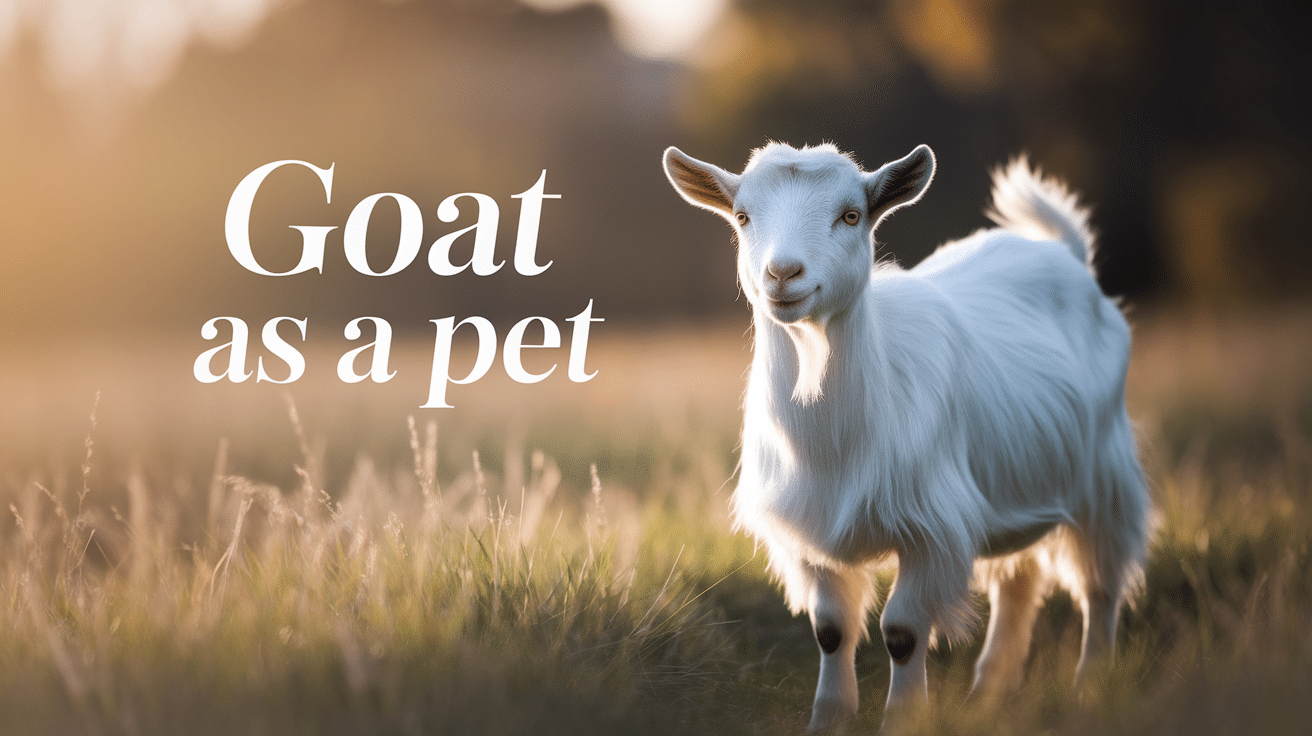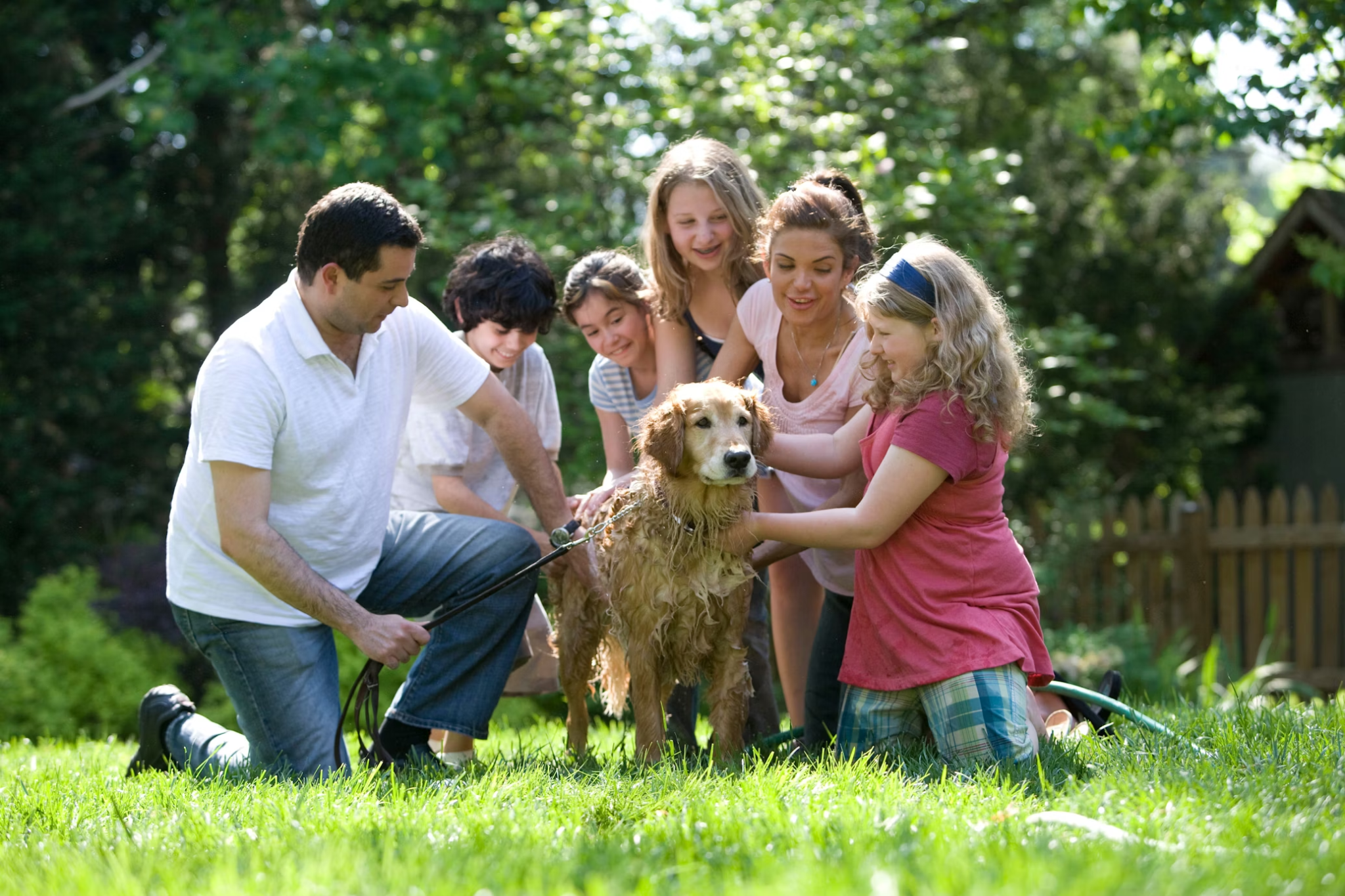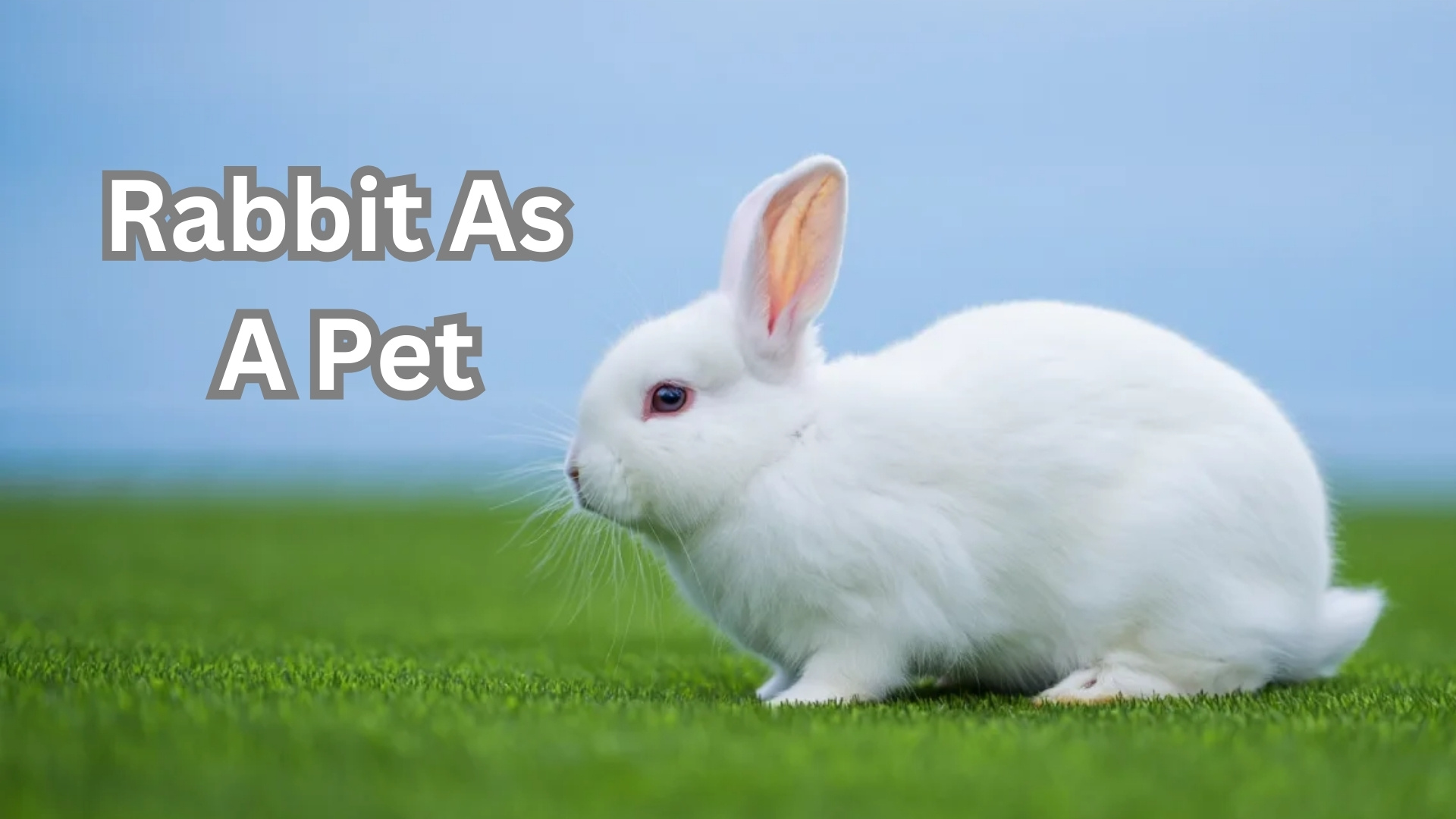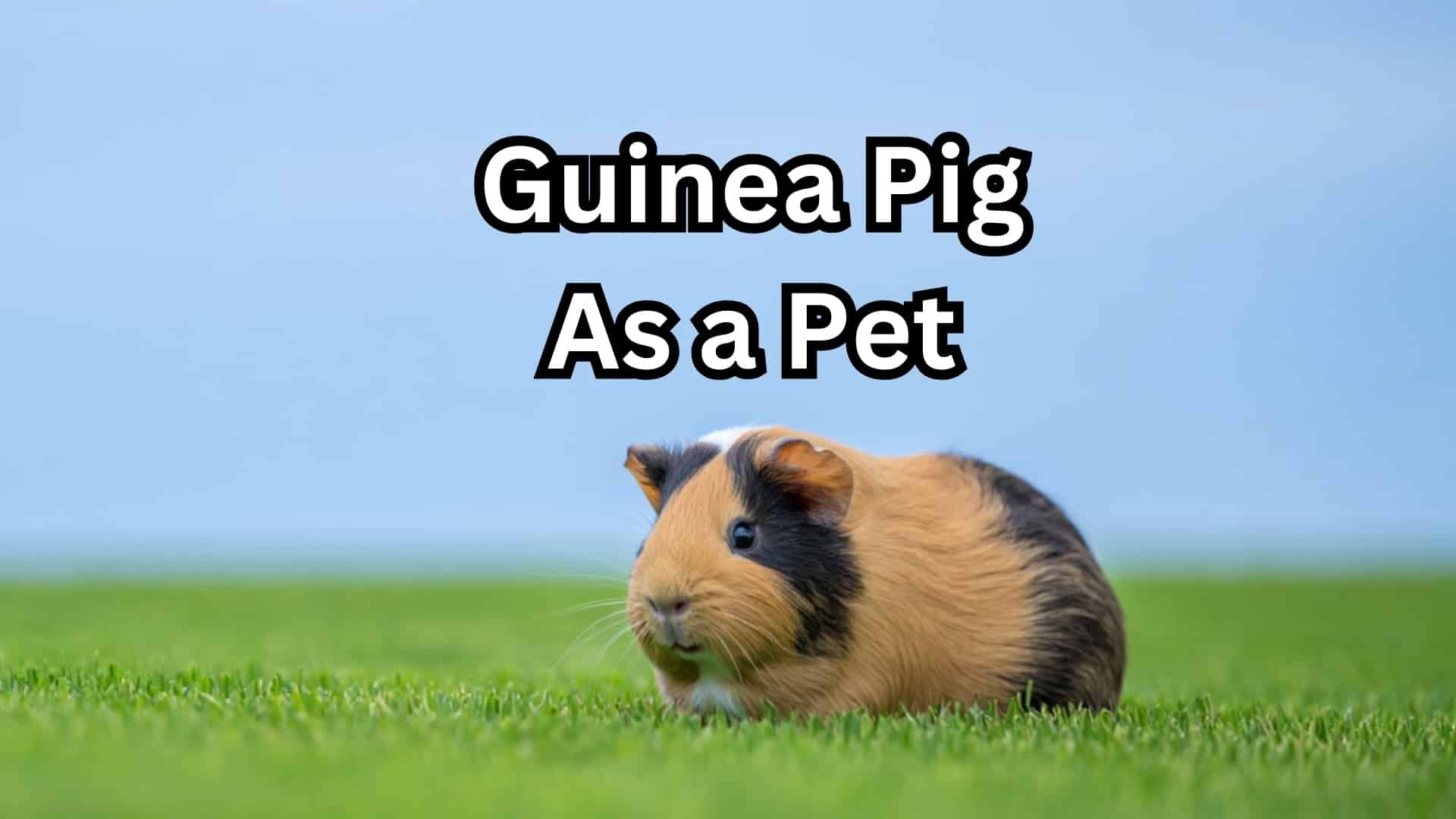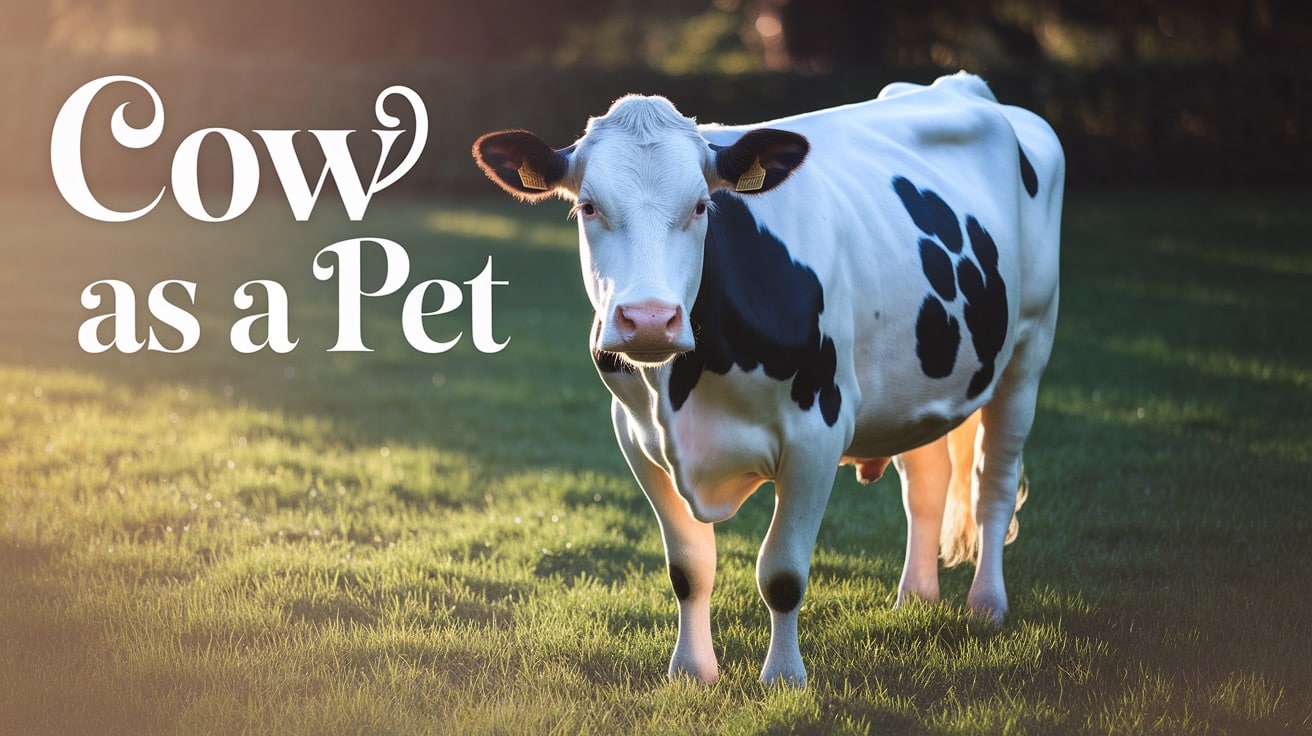
Are you thinking of petting a cow? Cows are emerging as companions beyond traditional farms.
These gentle giants offer a calm appearance, surprising intelligence, and practical benefits, which explains why more and more people are becoming interested in keeping them as pets or homestead partners.
Their friendly nature and ability to form strong bonds with humans make them excellent additions to many homes.
This blog covers everything about cow companionship – from basic care needs and legal considerations to ethical values, health requirements, space needs, feeding guidelines, and the many joys of having a bovine friend in your life.
Readers will learn how these animals can become wonderful pets with proper care and attention.
Basic Characteristics of A Cow
Before choosing a cow as your pet, here are some important statistics you should consider
| CHARACTERISTIC | AVERAGE INFORMATION |
|---|---|
| Size for Calf | 2 to 3 feet tall at birth |
| Size for Adult Cow | 4.5 to 5.5 feet tall at the shoulder |
| Lifespan | 15 to 20 years |
| Weight | 1,000 to 1,800 pounds |
| Horn Presence | Some breeds have horns; others are hornless |
| Coat Colors | Black, white, brown, red, or mixed patterns |
| Milk Production | 6 to 8 gallons per day |
| Common Uses | Milk, meat, manure, and companionship |
Note: This is average data found in an average size adult cow. It may vary with different breeds.
Can You Keep a Cow as A Pet in The Usa?
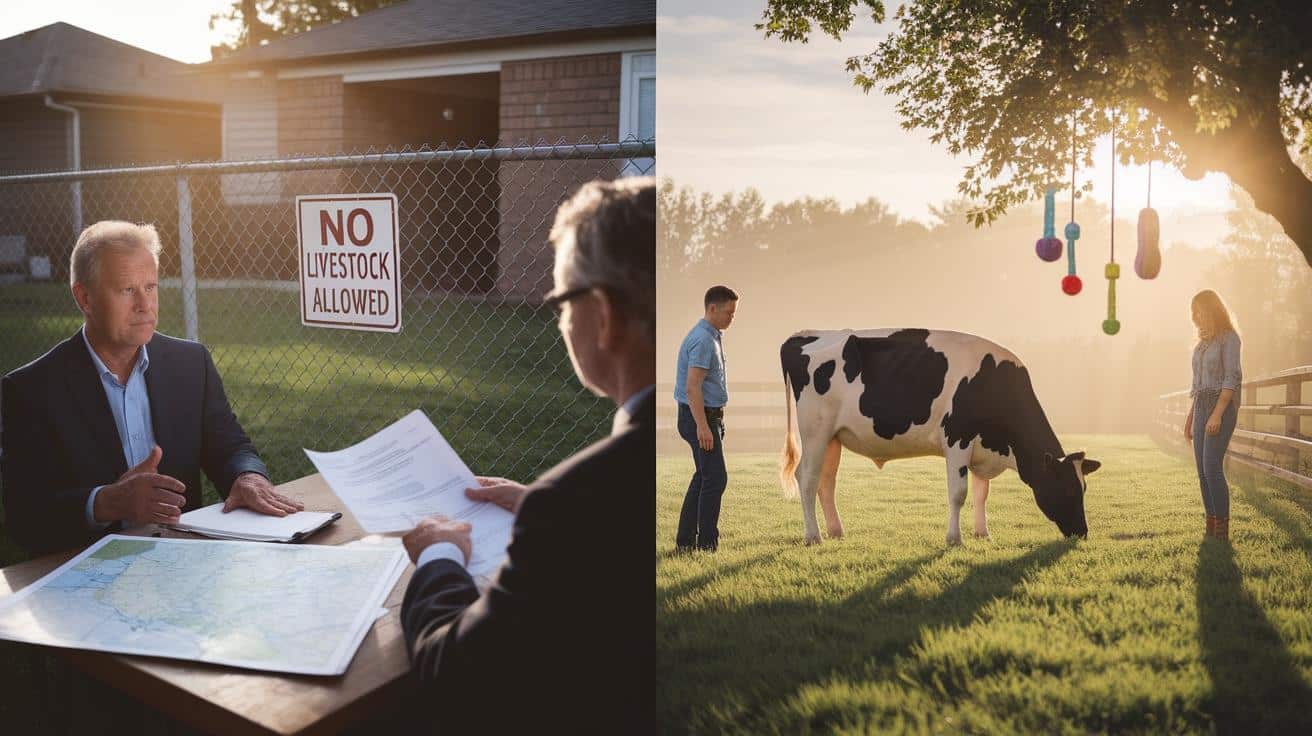
Petting cows is possible in the United States, but it depends on where you live and the local rules. Many people enjoy spending time with these gentle animals.
Legal Concerns
Different areas have different rules about keeping cows. Rural areas usually allow farm animals, while cities have strict limits.
Check your local zoning laws before getting a cow. Some places require permits or have space requirements for each animal. Animal welfare inspections might happen in some areas.
Ethical Concerns
Cows need proper space, food, water, and care. They shouldn’t be kept in small yards or where they might bother neighbors. Make sure you can meet all their needs before deciding to keep one as a pet.
No special certification is needed to own cows, but some states might require livestock tags or health certificates.
Best Cow Breeds to Keep as a Pet
If you are ready to bring a cow to your home to pet, here are some breeds you can choose from:
For Livestock Purposes
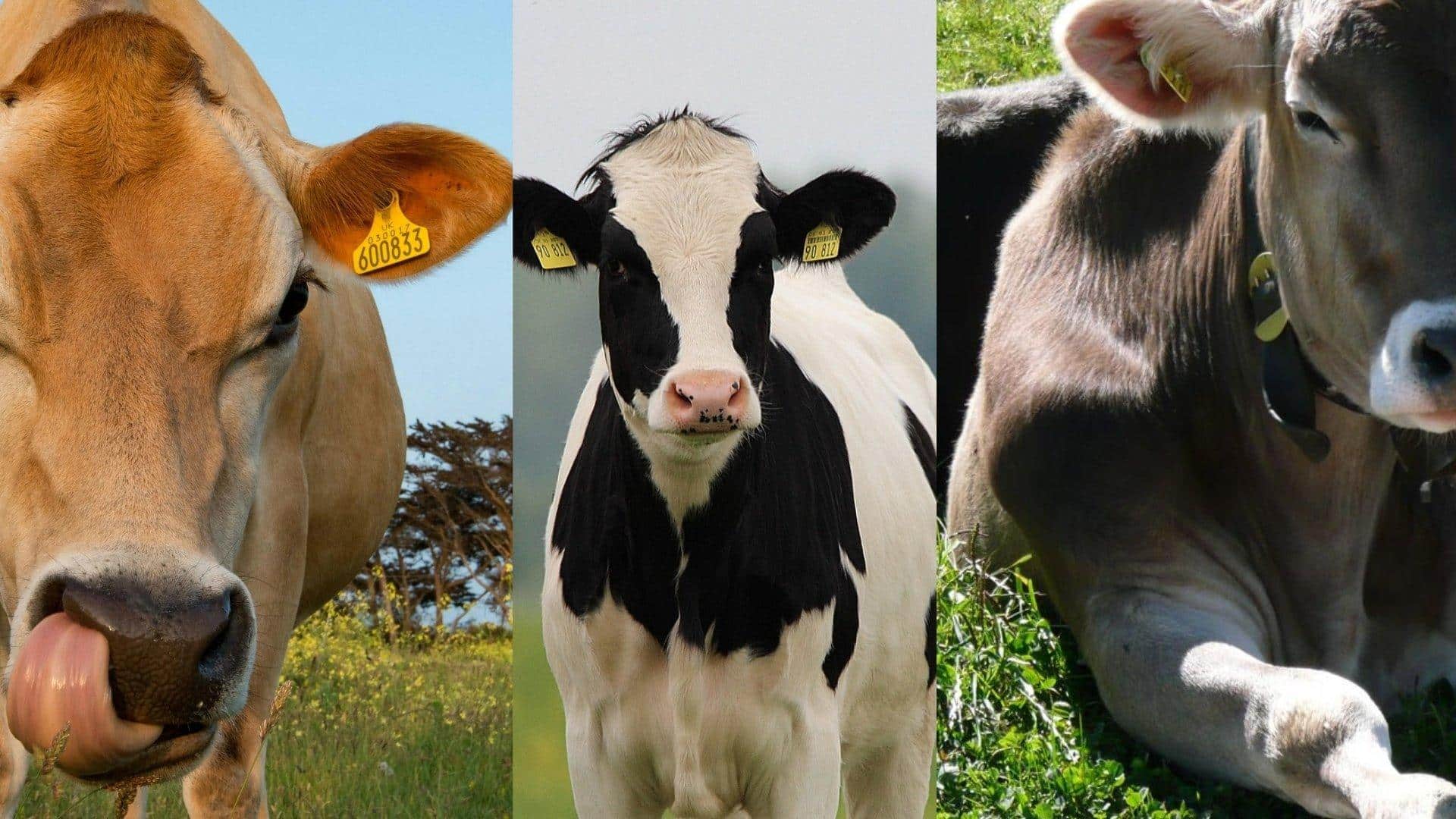
1. Jersey
Origin: Channel Islands (Jersey)
Specialty: Known for high butterfat milk, small size, and gentle temperament, making them efficient and manageable dairy cows.
2. Holstein
Origin: Netherlands
Specialty: Famous for the highest milk production among all dairy breeds, they are ideal for large-scale dairy farming.
3. Brown Swiss
Origin: Switzerland
Specialty: Valued for strength, docile nature, and protein-rich milk, making them great for both dairy and draft purposes.
For Family and Friendly Purposes
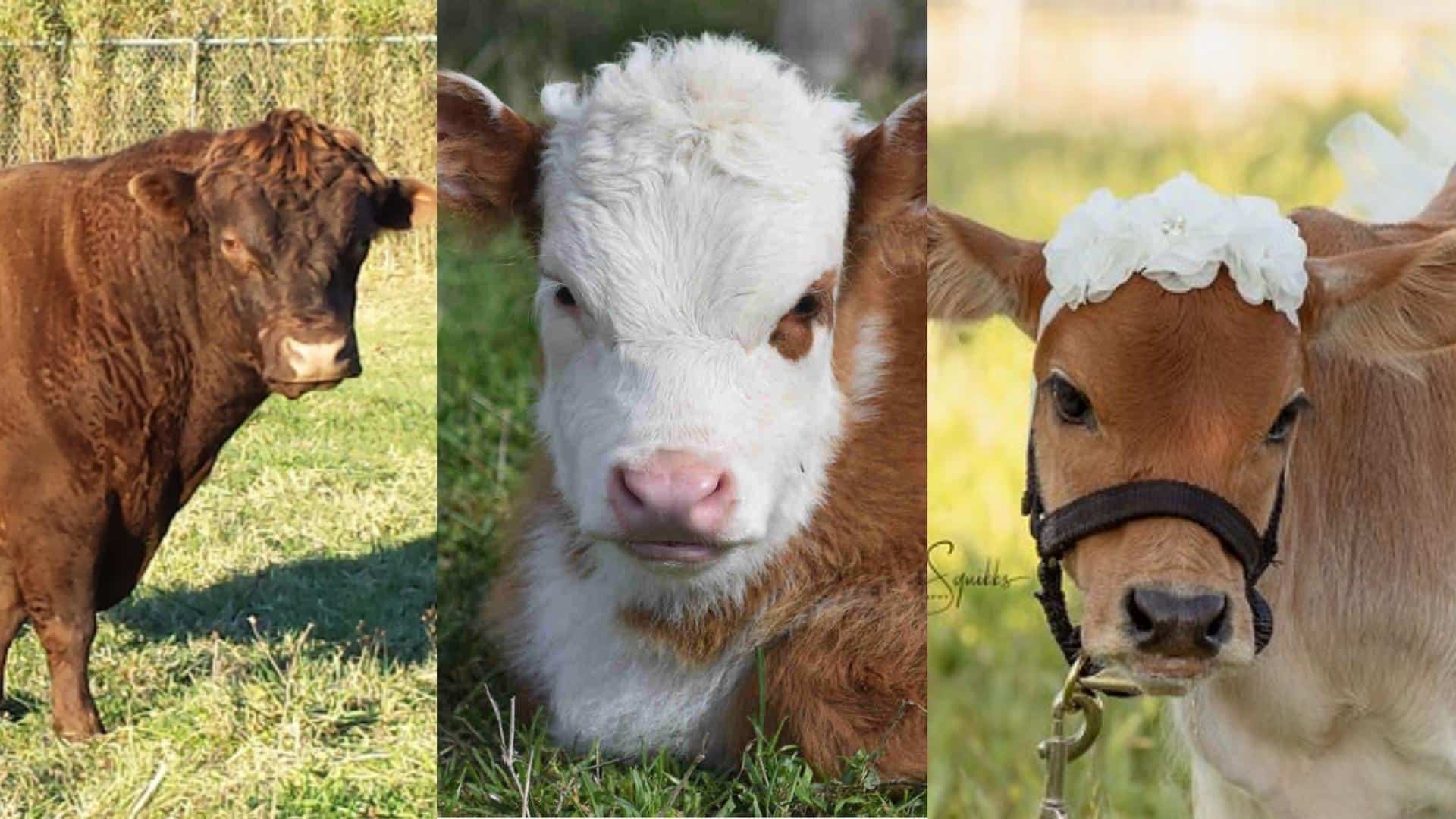
1. Dexter
Origin: Ireland
Specialty: Small and hardy, Dexters are perfect for homesteads due to their manageable size and friendly, calm nature.
2. Miniature Hereford
Origin: England
Specialty: Compact and easy to handle, these cows are known for their easy managibility and suitability for smaller farms or family environments.
3. Miniature Zebu
Origin: South Asia
Specialty: Heat-tolerant, disease-resistant, and social, making them ideal for warmer climates and interactive pet ownership.
Other Top Breeds to Consider
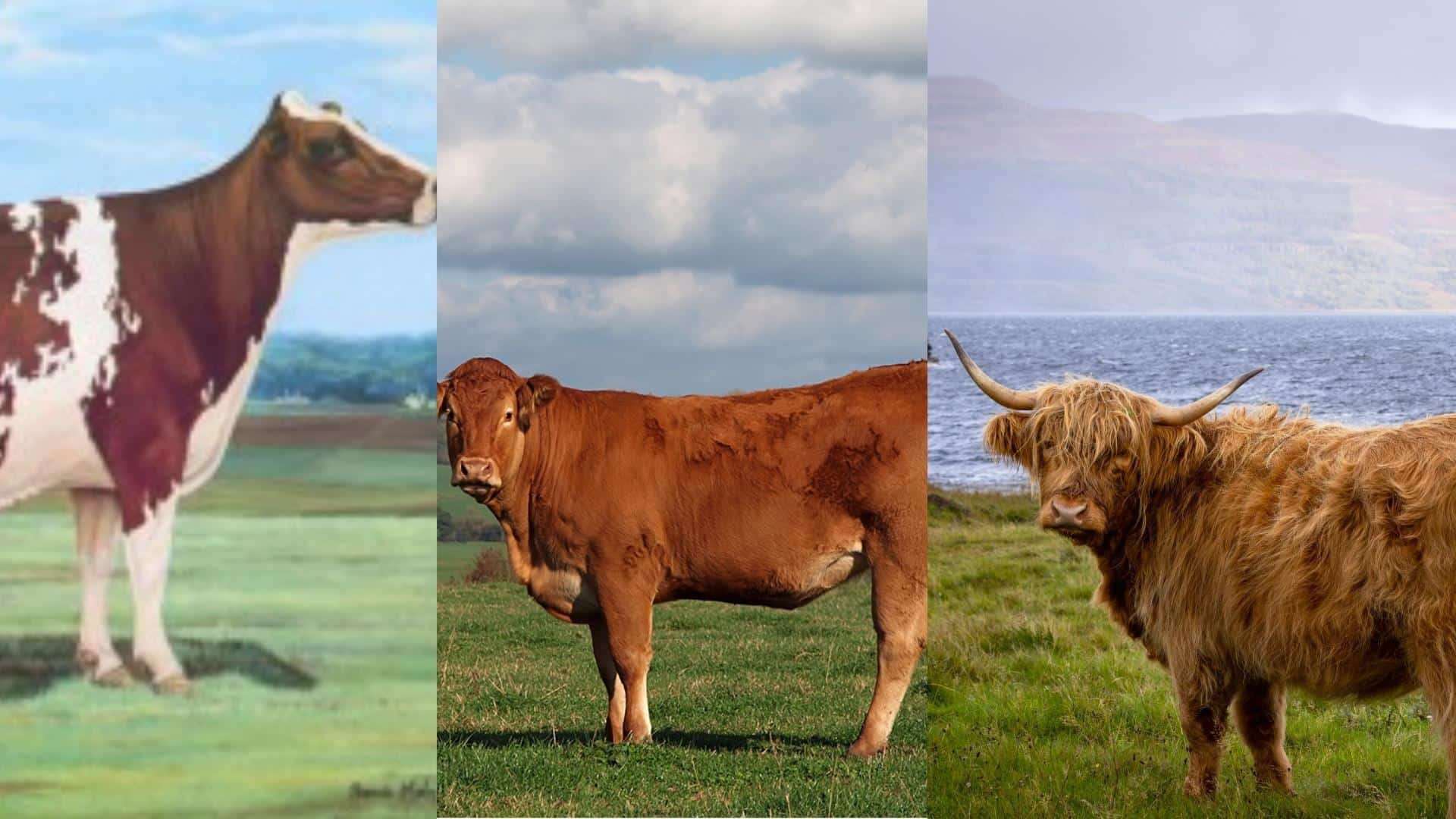
1. Guernsey
Origin: Channel Islands (Guernsey)
Specialty: Produces rich golden milk and is known for being docile and easy to work with, suitable for both milk and companionship.
2. Ayrshire
Origin: Scotland
Specialty: Hardy and efficient, these cows offer good milk yield and adapt well to various climates and terrains.
3. Highland
Origin: Scotland
Specialty: Distinct for their long hair and rugged beauty, Highlands are hardy, low-maintenance, and often admired as gentle pasture companions.
Care Requirements for Your Cow
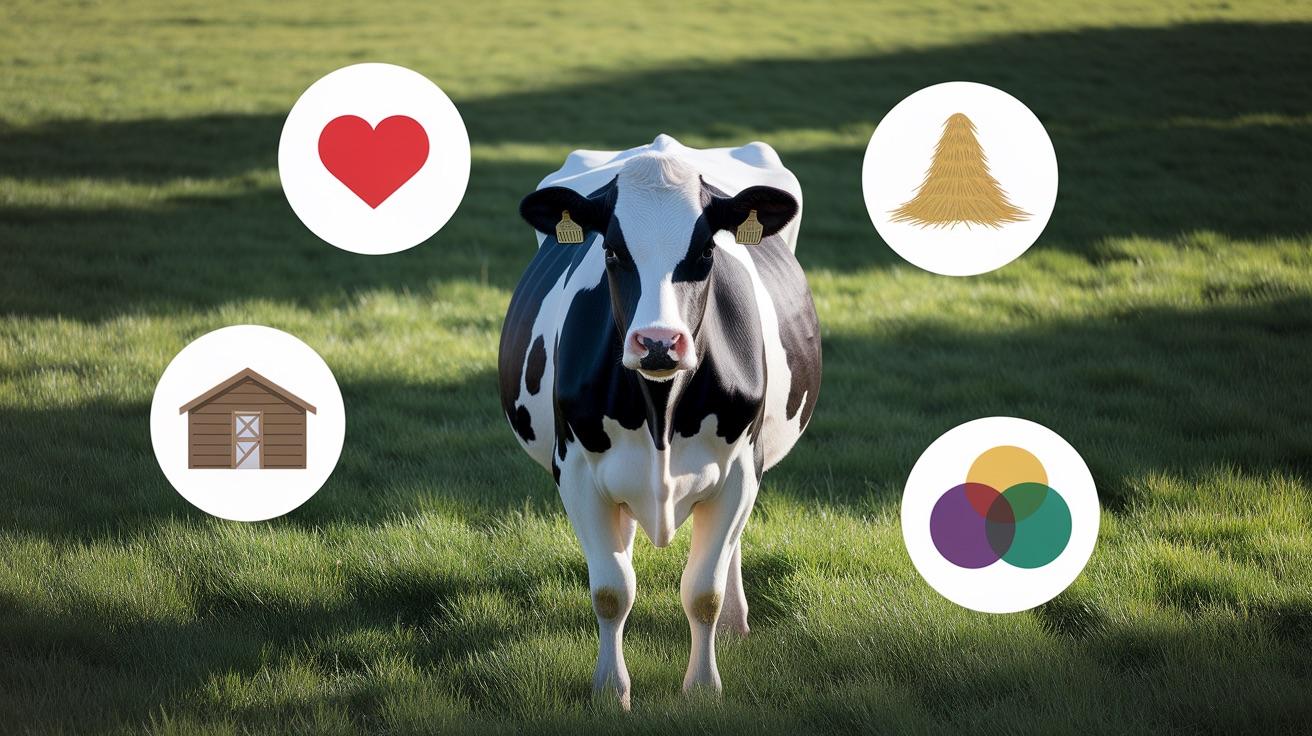
Cows need proper care to stay happy and healthy as pets. They have specific needs that are different from smaller pets like cats and dogs.
Here’s what you need to know about caring for your pet cow.
1. Housing Space
Cows need plenty of space to move around and be comfortable. Each cow should have at least one acre of land with both shelter and open space.
The shelter should protect them from bad weather, while the open area lets them graze and exercise naturally.
2. Diet and Nutrition
Cows eat mostly hay and grass, needing about 24-30 pounds of food each day. Fresh water should always be available, with an adult cow drinking up to 30 gallons daily.
Special cow feed with vitamins and minerals helps keep them healthy, especially during winter when fresh grass isn’t available.
3. Physical Activities
Cows enjoy walking and exploring their space. They should have room to roam freely for at least a few hours daily.
Simple activities like placing food in different spots encourage movement. Regular exercise keeps cows healthy and prevents them from getting too fat.
4. Training and Socializing Your Cow
Start training your cow when it’s young by using treats and gentle touches. Teach basic commands like “come” and “stop” for easier handling.
Cows are social animals that enjoy being with other cows or farm animals. Regular, gentle interaction with humans helps them become friendly pets.
5. Healthcare
Cows need regular vet checkups at least once a year. They require vaccinations, deworming treatments, and hoof trimming every few months.
Watch for signs of illness like not eating, breathing problems, or unusual behavior. Having a good farm vet’s phone number handy is important for emergencies.
6. Enrichment and Toys for Cow
Cows enjoy simple toys like large balls they can push around with their nose. Scratching posts and brushes let them satisfy their natural urge to rub against things.
Food puzzles that release treats when moved provide mental challenge and fun for curious cows.
7. Special Considerations During Pregnancy
Pregnant cows need extra care and more nutritious food and vitamins. As their due date approaches, they should be kept in a quiet, clean space away from other animals.
A vet should check on them regularly during pregnancy and be available when the cow gives birth to ensure both mother and calf stay healthy.
Pros and Cons of Keeping a Cow as a Pet
Here’s a quick comparison of the advantages and disadvantages of keeping a cow as a pet, which can help you decide if it is the right companion for your home and lifestyle.
| PROS | CONS |
|---|---|
| Gentle and affectionate nature | Requires a lot of space |
| Provides fresh milk daily | High feeding and maintenance costs |
| Can form strong bonds with humans | Needs regular veterinary care |
| Helps fertilize soil with manure | May damage lawns or gardens |
| Lowers stress with a calming presence | Not ideal for small urban settings |
Do Cows Get Along with Other Pets?
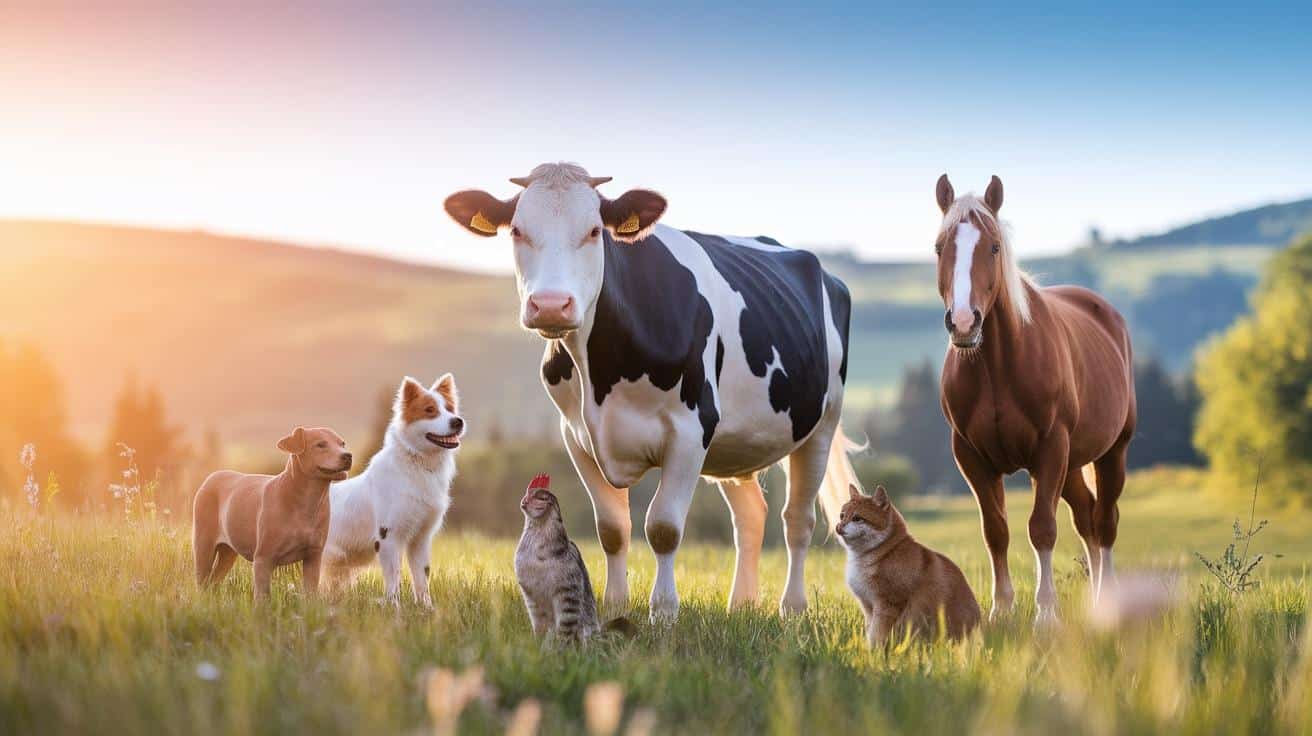
Cows can be friendly animals that often get along with other pets. The key is proper introduction and making sure all animals have enough space.
1. Cows and Dogs
Cows and dogs can develop good friendships with proper introduction. Dogs should be trained to stay calm around cows and not chase them.
Many farm dogs learn to work with cows and can even help herd them with the right training.
2. Cows and Cats
Cats and cows often get along well. Cats may enjoy the barn environment where cows live and help keep rodents away.
Some cows seem curious about cats, while cats typically keep a safe distance but can become comfortable around gentle cows.
3. Cows and Horses
Cows and horses can be good companions when they have enough space. They both eat similar foods and enjoy grazing together.
Most cows and horses learn to respect each other’s space and can share pastures peacefully.
4. Cows and Chickens
Chickens and cows can live together on the same farm. Chickens help keep bug populations down around cows. Although both animals usually ignore each other, it’s important to give chickens places to escape if needed.
5. Cows and Other Farm Animals
Cows can get along with goats, sheep, and pigs with proper space. Each animal needs its own area for feeding to prevent food fights.
Farm animals that grow up together often develop better relationships than those introduced as adults.
Final Thoughts
Cows can be gentle and rewarding pets for the right families. Before bringing a cow home, think carefully about space requirements, local zoning laws, and daily care responsibilities.
These social animals need regular attention, proper nutrition, and secure housing. They’re not like traditional pets and require more space and specialized care.
Talking to experienced cow owners and checking local agricultural regulations can help make an informed decision. Now you know what to consider and how to prepare for a cow.
With proper preparation, a cow can be a unique and affectionate companion for people who love animals and have adequate land and facilities.
If you’re interested in more informational content on pets and animals, feel free to click here and explore other blogs that you might enjoy.

